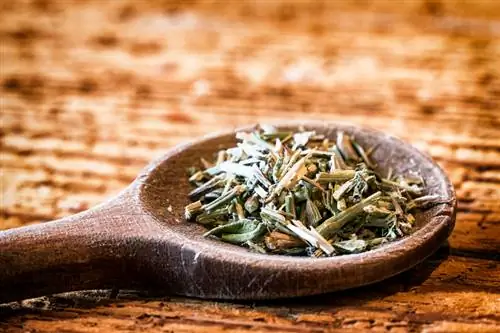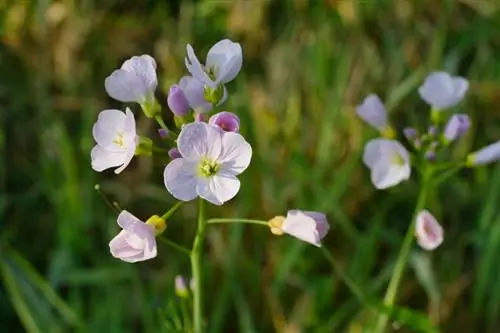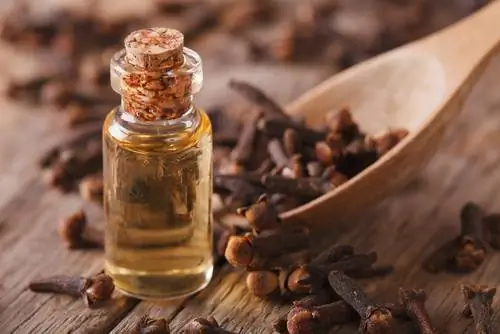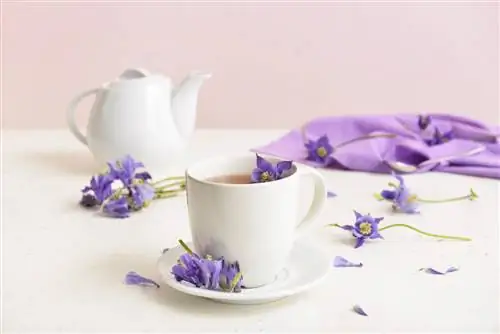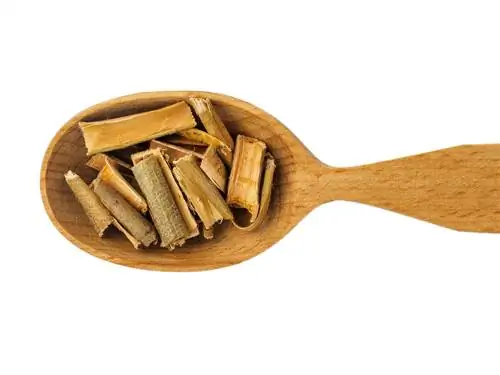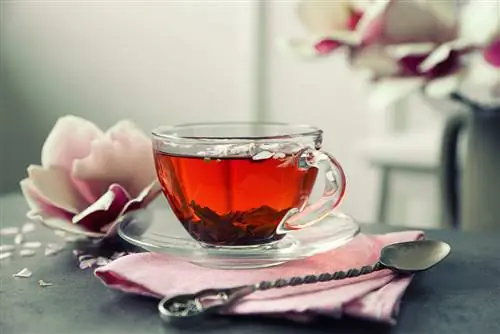- Author admin [email protected].
- Public 2023-12-16 16:46.
- Last modified 2025-01-23 11:20.
Hyssop tastes strong and spicy with a slightly bitter note. The aromatic herb comes from the south and is suitable for preparing most Mediterranean dishes. Hyssop is also unbeatable as an ingredient in herbal tea, oil or in fragrance mixtures.
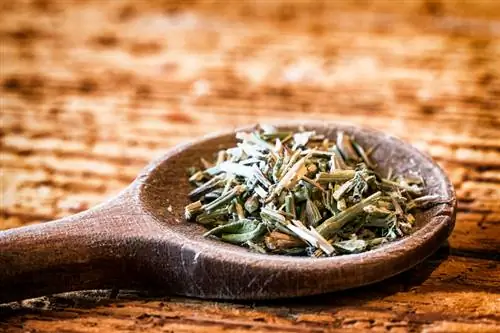
What is hyssop used for?
Hyssop is used in the kitchen as a seasoning for Mediterranean dishes, potato or tomato salad as well as for soups and roasts. It is also used in naturopathy, homeopathy, cosmetics and perfumery. As a medicinal herb, hyssop has anti-inflammatory, antispasmodic and strengthening effects.
In southern Europe, hyssop grows as a wild herb in rocky, dry areas. Since the Middle Ages it has also been cultivated in northern areas. At that time, hyssop was used against lung diseases, dropsy, epilepsy, plague and as a poultice to treat wounds. Even today, hyssop still has medicinal uses in naturopathy and homeopathy as well as in cosmetics and perfume production.
Use in the kitchen
Young leaves and shoots, but also the flowers, are preferably used fresh, or alternatively dried, for seasoning. You should not cook the aromatic herb as it loses its aroma. Harvesting begins around June. There are the following possible uses for fresh herb:
- for potato or tomato salad,
- in soups and with roasts,
- for inserting grilled food,
- as a mixture for herb butter,
- for making herbal liqueur.
Other uses
Hyssop contains a variety of essential oils, bitter substances and tannins. These substances have given hyssop its reputation as a medicinal herb. In the past, hyssop was used to treat lung diseases, digestive problems or for washing. In naturopathy it is still said to have anti-inflammatory, antispasmodic and strengthening effects.
As a component of herbal tea or fragrance mixtures, hyssop is said to help with cold symptoms. However, the proportion of hyssop in a tea mixture should not exceed 5%. In general, due to symptoms of poisoning that have already occurred, we warn against use in the following cases, especially in higher doses over a longer period of time:
- for pregnant women,
- in small children,
- for people suffering from epilepsy.
Tip
Hyssop, which tolerates cutting, is also well suited as an ornamental shrub - especially for edging rose beds. It is easy to care for, hardy and remains evergreen in the mild winters.

